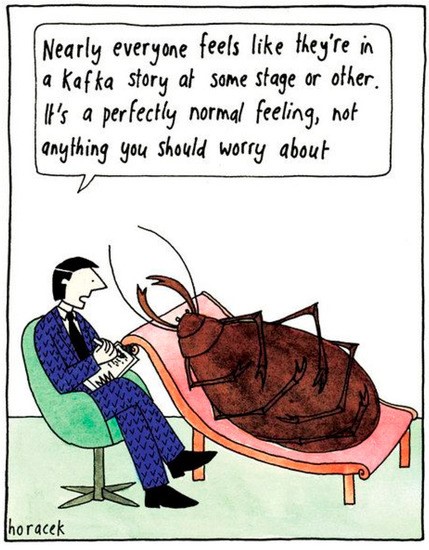Time is short, my strength is limited, the office is a horror, the apartment is noisy, and if a pleasant, straightforward life it not possible then one must try to wiggle through by subtle manoeuvres.
Franz Kafka, quote via Daily Rituals by Mason Currey
Kafka’s words, on trying to organise his life around his writing. Kafka’s works are notoriously dark and surreal, but his letters suggest anything but an effortless creative experience. The quote paints a picture of a generally hectic and cluttered life, where the free flow of ideas is staunched.
But closely tied to it is fatigue, and lack of proper rest. The full quote goes on to explain, “The satisfaction gained by manoeuvring one’s timetable successfully cannot be compared to the permanent misery of knowing that fatigue of any kind shows itself better and more clearly in writing than anything one is really trying to say.“

Following on from my last post, Kafka’s words go deeper into why rest is vital for creative output. Fatigue not only cuts off access to creative energy, but degrades the quality of the small amount that does get done.
But the quote offers no solution, only sober reality: the time will never come when conditions are perfect, when life resembles the stillest lake waters and the vistas of the mind are clear of mist. You have to make do with those subtle manoeuvres: rest in those brief respites between between breaking waves, and when you catch your breath, stumble through the mists, and over months and years, maybe make something new.



